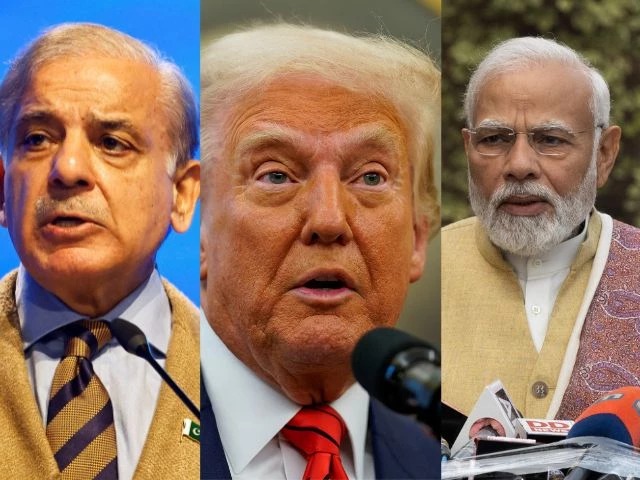Trump signals Washington’s readiness to help ease tensions between nuclear-armed neighbours, offering US support for a peaceful resolution

By Amjad Qaimkhani
WASHINGTON: US President Donald Trump’s latest offer to mediate between Pakistan and India over the decades-old Kashmir dispute has been met with a swift and unequivocal rejection from New Delhi, underscoring the sensitivity and deep-rooted complexity of the conflict that continues to cast a long shadow over South Asia.
In remarks that reignited diplomatic chatter, Trump stated that Washington is willing to play a role in easing tensions between the nuclear-armed neighbors, suggesting that the United States could help facilitate a peaceful resolution. “We will work together with both countries and see if a peaceful way forward is possible,” he said, noting that the broader goal also includes expanding trade relations with both Islamabad and New Delhi.
However, Indian officials were quick to push back against the proposal. Citing unnamed government sources, Indian news agencies reported that New Delhi remains firmly opposed to any third-party involvement in matters related to Kashmir. From India’s perspective, the issue is strictly bilateral, and any discussions pertaining to military or territorial concerns would take place solely through established military channels—specifically, the Directors General of Military Operations (DGMO) of both nations.
“India will not include any third party in talks, nor is it ready to discuss Kashmir with anyone other than Pakistan’s DGMO,” a senior Indian official was quoted as saying, further hardening the stance that has long defined India’s diplomatic position on the issue.
In contrast, Pakistani Prime Minister Shehbaz Sharif welcomed Trump’s remarks with cautious optimism, calling them a potential opening for constructive engagement. Islamabad has consistently supported third-party mediation, including by the United Nations and major global powers, citing what it describes as a moral and humanitarian imperative tied to the longstanding suffering of Kashmiris.
Trump’s overture comes at a time when regional and global dynamics are in flux, and while his comments may have been made with an eye toward broader US influence and trade partnerships in the region, the immediate reaction from India leaves little room for outside involvement. As it stands, the stalemate over Kashmir appears set to endure, with dialogue—if any—remaining constrained to military backchannels rather than mediated negotiation tables.



